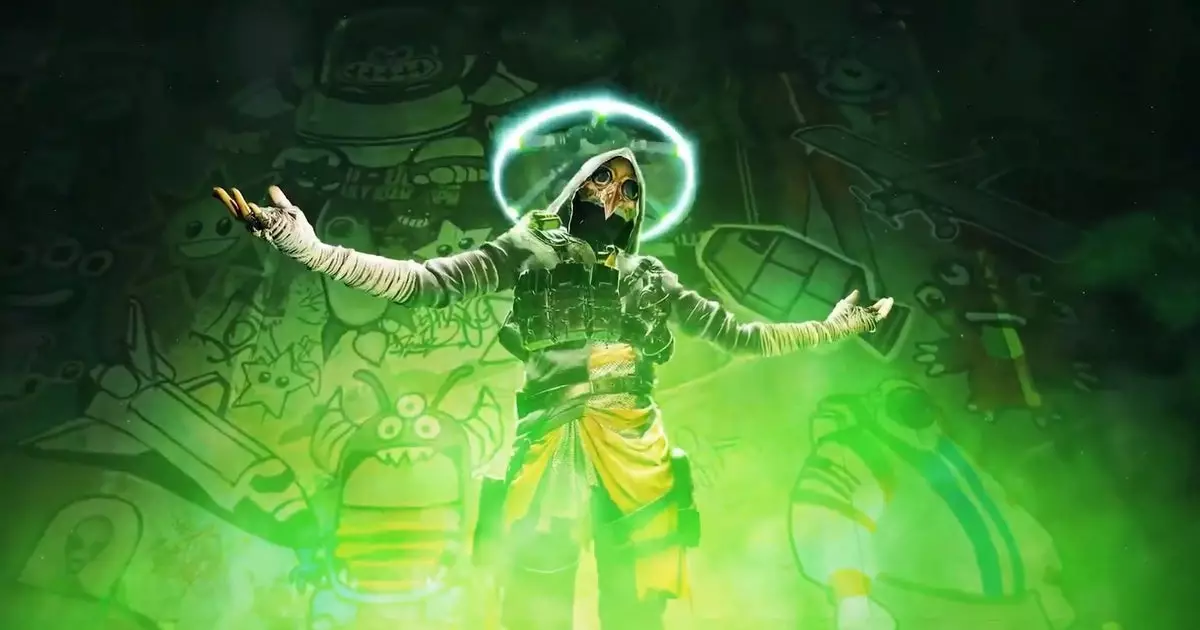Ubisoft, once heralded as a pioneer in the gaming industry, finds itself at a significant crossroads with the discontinuation of its PvP shooter, XDefiant. This decision has not only resulted in the shuttering of an ambitious title but has also led to the layoff of approximately 277 employees across various global studios. The company’s choice to abandon XDefiant raises important questions about the future of game development, the viability of the free-to-play market, and the consequences of misjudged investments in game-as-a-service models.
The closure of XDefiant was communicated by Marie-Sophie de Waubert, an executive at Ubisoft, who acknowledged the studio’s inability to retain a stable player base amid fierce competition in the free-to-play FPS landscape. Her statement revealed not just the game’s struggles, but also an unsettling trend within Ubisoft’s business model. De Waubert emphasized that despite the company’s ambitious aims, the reality of the game’s performance fell short. The decision to continue the game’s service until June, alongside some remaining updates, feels strangely hollow amidst the impending layoffs.
It’s pivotal to note the irony inherent in the language used during these announcements. The term “departing” used to describe the layoffs carries an unintended weight of detachment, differing starkly from the harsh reality faced by the affected employees in San Francisco, Osaka, and Sydney. These individuals are confronted with the realities of job loss, an emotional and financial burden not easily ignored behind euphemistic corporate communications.
The broader implications of XDefiant’s closure are emblematic of the increasing scrutiny faced by game-as-a-service models. Historically, Ubisoft has championed this format, leaning heavily on titles like Rainbow Six Siege and For Honor to demonstrate potential longevity. Yet, with XDefiant as a case study, doubts resurface regarding the sustainability of such business practices. De Waubert’s assertion that the company will continue to invest in games-as-a-service reveals either persistence in a faltering strategy or an unwillingness to acknowledge significant industry shifts.
This disconnect between ambition and reality marks a critical point for the company. Players are becoming desensitized to the repetitive bait of “live service” models that often promise transformation but frequently lead to disappointment. As the gaming landscape evolves, the lessons learned from XDefiant might compel Ubisoft to reevaluate its strategies leading to future offerings.
Community engagement has become paramount in today’s gaming environment, with developers required to maintain open channels of communication and actively respond to player feedback. Earlier in XDefiant’s lifecycle, concerns raised by the gaming community were echoed by executive producer Mark Rubin, who dismissed rumors of the game “dying.” His optimistic stance brought temporary solace, suggesting that Ubisoft was ready to address community concerns.
Yet, as we now see, this response lacked the necessary follow-through and ultimately contributed to the game’s downfall. Ubisoft’s failure to implement substantial changes, as promised, highlights a disconnect between corporate aspirations and player expectations. The absence of tangible results in improving gameplay and engagement can lead to losing trust—a vital currency in the gaming community.
As the dust settles on the closure of XDefiant, the impact on Ubisoft’s workforce weighs heavily on the shoulders of its leadership. The impending layoffs signify more than just a loss of numbers; they mark a significant shift in the corporate culture and operational ethos of the studios involved. While some individuals will transition into new roles within the company, the bulk of those affected face an uncertain future amidst the rapidly changing gaming landscape.
The company’s commitment to maintaining its focus on games-as-a-service does little to reassure those impacted by the layoffs. As industry analysts ponder the long-term viability of Ubisoft’s strategies, the question becomes whether the company can indeed learn from its missteps, or if it will continue to tread a well-worn, albeit faltering path.
The discontinuation of XDefiant serves as a poignant reminder of the inherent risks associated with the gaming industry. Ubisoft’s experience with this title invites deeper reflection on business models, player engagement, and the importance of adaptive leadership in today’s competitive market. As nearly 300 employees seek new opportunities, the lessons drawn from this closure could shape the future trajectory of both Ubisoft and the gaming industry as a whole.


Leave a Reply